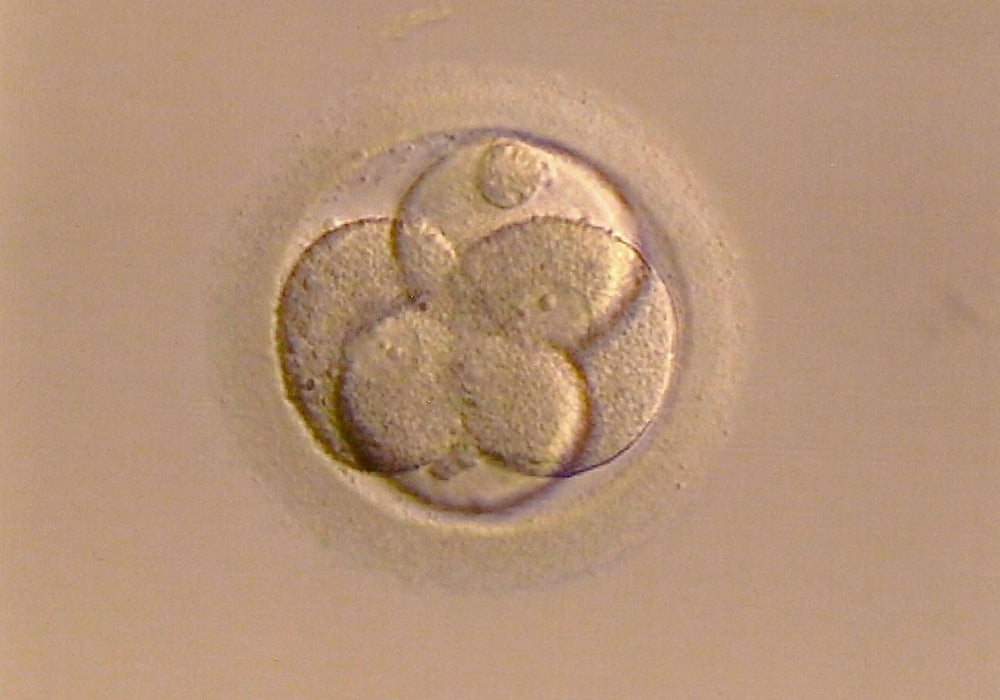Coenzyme Q10 can improve egg quality and is often recommended as a power food for better eggs under the keyword "Pimp your Eggs". Find out why coenzyme Q10 can improve the quality of eggs (and even sperm) in this article.
How coenzyme Q10 increases the chances of pregnancy
The fat-soluble molecule coenzyme Q10 is a vital antioxidant that, among other things, protects cells from free radicals and strengthens our internal "cellular power plants" (the mitochondria) as part of energy production and provision. Mitochondria are needed for the processes of fertilisation and cell division, i.e. during the development of the embryo. These germ cells are particularly susceptible to damage from oxidative stress, which has a negative effect on egg and sperm quality, fertilisation rate, early embryonic development and embryo implantation.
Optimal energy supply to the maturing eggs is important if a woman wants to have children and can increase her fertility. In the eggs of older women, the processes are usually significantly reduced. Many studies show that taking coenzyme Q10 can naturally improve egg quality and increase the number of fertilisable eggs. Even in infertility treatment, high mitochondrial performance can positively influence the body's response to IVF or ICSI stimulation, increasing the fertilisation rate and chances of getting pregnant.
How can I increase my supply of coenzyme Q10?
CoQ10 is both produced by the body (500 to 2,000 mg per day) and absorbed in small amounts (5 to 10 mg per day) through food. Suppliers include meat, eggs, sardines, olive oil, walnuts, avocados, spinach and garlic.
However, under increased stress and with increasing age, the natural production in our body decreases rapidly! Women whose egg reserves are quickly depleted often include those who suffer from PCOS (polycystic ovarian syndrome), chronic inflammation, thyroid disease or miscarriage.
How much mg of coenzyme Q10 for those who want to have children?
For physically healthy women, a daily dosage of 60 - 100 mg CoQ10 is recommended. In the initial phase of the first 2-3 weeks, a daily dose of 200 - 300 mg is recommended. For improved absorption, CoQ10 preparations should be taken with food.
In cases of PCO syndrome (PCOS) or hypothyroidism, a daily dose of 200 mg CoQ10 is recommended. In cases of frequent miscarriages, it is even recommended to take up to 300 mg CoQ10 per day. Individual dosages should be discussed with the gynaecologist in advance. Consistent intake of the Q10 preparation in the correct dosage is essential to prepare the body well for pregnancy. A dose of 1,200 mg Q10 per day should not be exceeded!
Note: If you are taking Q10 at the same time as an anticoagulant, you should only take it after consulting your doctor.
When should I start taking Q10?
In order to achieve the best possible effect, if you wish to have a child, you should start taking Q10 2-3 weeks, ideally up to three months, before the intended natural pregnancy or fertility treatment. As soon as pregnancy occurs, it is recommended to stop taking coenzyme.
Taking coenzyme Q10 in men
Taking coenzyme Q10 is also useful for men. Several studies have shown that a daily intake of CoQ10 improves the motility of sperm. The study was conducted with a dose of 60 mg per day.
As a dietary supplement, coenzyme Q10 can be purchased from pharmacies as capsules or tablets in various forms. If you have any further questions about coenzyme Q10 or wanting to have children, please feel free to contact our pharmacists at Saint Charles Pharmacies in Vienna or Berlin.







